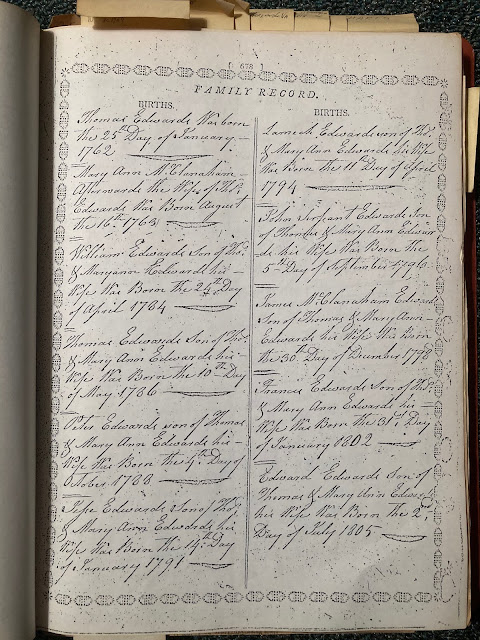Genealogy and Cognitive Bias
When i think about people with hobbies like playing baseball, collecting coins, needlework, or even video gaming, I tend to think most people who spend some time on these things tend to be pretty good at it. After all, how long can you be awful at baseball before your teammates kick you out?
For some reason, there don't seem to be any barriers for bad genealogists. The vast majority doing "research" online seem to simply be name collectors, content to pull together the research of others without checking their work and adding them to their own trees (bad enough) or publicly editable trees (even worse). Most seem to be extremely passive about their research, which is fine. But there are those who defiantly post old, badly supported theories continuously without doing a scrap of work themselves.
I've found when I actually talk to the folks who are doing this, there are a couple of evident cognitive biases at work:
Anchoring bias: when genealogists consider the first theory they heard about to be the "authentic" theory. This presents a tremendous psychological hurdle to overcome, even if the new theory is well supported and the original has no support whatsoever.
Herd mentality bias: when genealogists are faced with new a new theory, they discount it because it hasn't yet become the predominant theory. After all, if the new theory is correct, why hasn't everyone else adopted it yet?
This one-two punch of bad genealogy I've seen play out in the past couple of years, particularly in colonial genealogy, which, owing to the scarcity of genealogically valuable records, is extremely difficult. Usually the first genealogist to get a theory on the internet prevails regardless of how well-researched or sound the theory is.
I found this to be true, for example, with the Clanton family of Virginia and South Carolina. The first work on this line was done in the early 2000s and published as a PDF book back in 2005. Unfortunately this "book" is nothing more than a collection of completely unsourced and unsupported family group sheets for a handful of colonial ancestors. Not a single record is mentioned. That didn't stop lazy genealogists from copying and pasting the author's mostly terrible research. Much better research emerged just six years later and was almost completely ignored by the online genealogy community.
More strikingly, I've seen this play out with a theory about a late 18th century ancestor on my mother's side from the Billings family of Vermont. Genealogists around the internet confidently post her maiden name in every family tree and cite "tradition"as the source, even though the only "tradition" is modern genealogists getting things wrong. I know this because I was the source of the mistake (many years earlier). But try and posit a new, well-supported theory and you face anchoring bias.
I suspect the same is true in many older genealogical works, and I've definitely found this is true with the Edwards family. The earliest sources cite "tradition" within the family as the source for the Edwards family of Westmoreland being migrants from Northumberland... or Lancaster... or Surry, depending on which theory you believe. Only the names William Edwards and Ann Harrison seem to be consistent, despite the fact that no one seems to have ever posited evidence that this couple existed, but I digress. Because even great genealogists like George Harrison Sanford King used this "tradition" as their starting point, they failed to do the real work of genealogy in the will, deed and order books of Westmoreland and King George Counties which would have shown them the plain truth of the family.
But I posit that the only tradition this emerges from was likely just the faulty assumptions of very early genealogists. If Billings researchers on the internet trusted that my own early mistake was "tradition," why wouldn't they trust something published in the journal of the Kentucky Historical Society?
If you don't do your own research, please, please, please stop posting online, sharing GEDCOMs or editing public trees on Geni, Wikitree or Familysearch. You are just making things harder for people who spend thousands of hours ripping through will, deed and order books and finding the real info.



Comments
Post a Comment